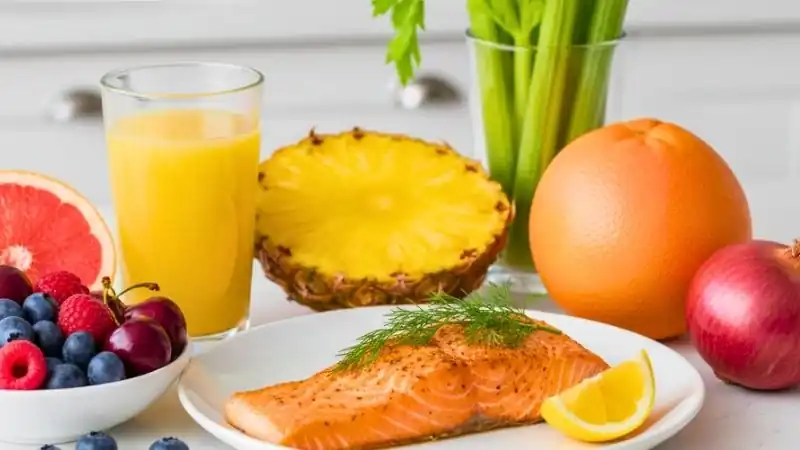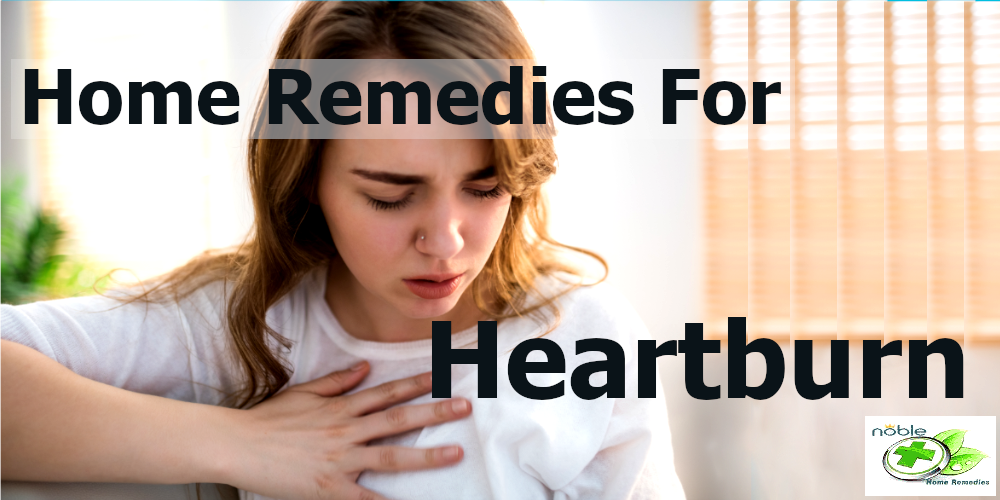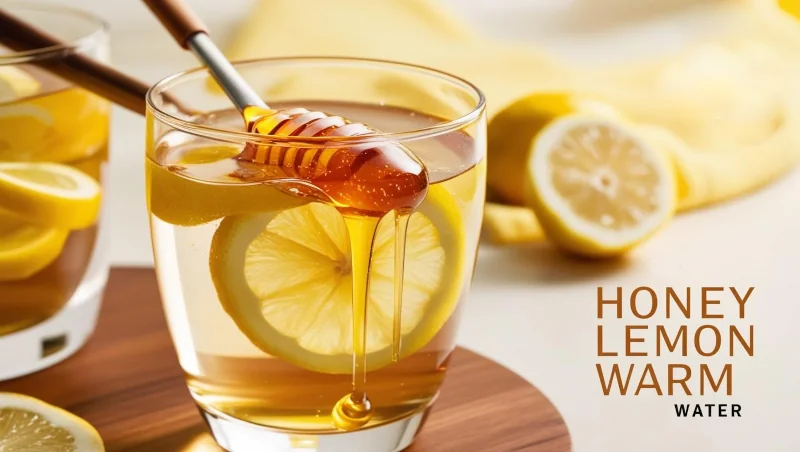Mucus Relief Remedies: 15 Natural Ways to Clear Congestion Fast

Waking up with a stuffy nose and chest congestion can feel overwhelming. You know that uncomfortable feeling—the constant need to clear your throat, the difficulty breathing, and that annoying tickle that just won’t go away. If you’re dealing with excess mucus right now, you’re not alone, and more importantly, relief is within reach.
Mucus is your body’s natural defense system. It traps viruses, bacteria, and irritants to protect your respiratory system. But when infections, allergies, or environmental factors kick in, your body can produce too much of it. The good news? You don’t need complicated treatments to find relief. Simple, natural mucus relief remedies can help thin, loosen, and expel that stubborn congestion so you can breathe easier again.
Medical Expertise You Can Trust: This article is based on evidence-based research from leading medical institutions, including the Cleveland Clinic, Medical News Today, and peer-reviewed studies published in the National Institutes of Health database. The remedies discussed have been validated by respiratory health experts based on the respective sources and are widely recommended by healthcare professionals for safe, effective mucus clearance.
Understanding Mucus and Why Your Body Produces It

Have you ever wondered why your body creates mucus in the first place? Understanding this can help you work with your body—not against it—to find relief.
Mucus is a thin, slippery substance made of water, proteins, salts, and cells. It forms a protective lining throughout your respiratory system, keeping your airways moist and trapping harmful invaders before they can cause damage. Think of it as your body’s built-in security system, working around the clock to keep you healthy.
What Causes Excess Mucus Production?
Your body ramps up mucus production when it detects a threat. Common triggers include:
- Infections like colds, flu, and sinus infections cause your immune system to produce extra mucus to flush out viruses and bacteria. When you’re fighting an infection, mucus becomes thicker and stickier as it fills with white blood cells battling the invaders.
- Allergies make your immune system overreact to harmless substances like pollen, dust, or pet dander. Your body releases histamine, which causes mucous membranes to swell and produce more mucus in an attempt to wash away the allergen.
- Respiratory conditions such as asthma, COPD, bronchitis, and cystic fibrosis can cause chronic mucus buildup. People with these conditions often struggle with thicker mucus that’s harder to clear naturally.
Understanding Mucus Colors: What They Tell You
The color of your mucus can reveal important clues about what’s happening in your body:
- Clear mucus is normal and healthy, or may indicate allergies.
- White or cloudy mucus suggests nasal congestion or the early stages of an infection.
- Yellow mucus means your immune system is fighting back—white blood cells are present and actively battling an infection.
- Green mucus indicates an active immune response with a prolonged infection. The green color comes from an enzyme released by white blood cells.
- When should you see a doctor? If your symptoms persist beyond 10-12 days, you develop a high fever, experience difficulty breathing, or notice blood in your mucus, it’s time to seek medical attention.
Hydration-Based Mucus Relief Remedies
Water is your secret weapon against stubborn mucus. Staying hydrated is one of the simplest yet most powerful mucus relief remedies you can use. Here’s why it works and how to maximize its benefits.
Drink Plenty of Water Throughout the Day

When you’re dehydrated, your mucus becomes thick and sticky, making it much harder to clear from your airways. Drinking adequate water helps thin mucus so it can drain more easily from your sinuses and lungs.
How much should you drink? During congestion, aim to drink more fluids than usual—at least 8-10 glasses of water daily. If you have a fever, you’ll need even more to replace fluids lost through sweating.
Research shows that proper hydration is the dominant factor governing mucus clearance—even more important than ciliary activity or mucin secretion. Keeping your body well-hydrated ensures your mucus stays thin enough for your body’s natural clearance mechanisms to work effectively.
Hot Herbal Teas for Mucus Relief
There’s something incredibly soothing about wrapping your hands around a warm cup of tea when you’re congested. But hot herbal teas offer more than just comfort—they provide real therapeutic benefits.
The warmth and steam from hot beverages help loosen mucus in your chest and throat. The heat also increases blood flow to your respiratory system, supporting faster healing.
Best tea options for mucus relief:
- Ginger tea contains gingerol and shogaol, powerful compounds with anti-inflammatory and antimicrobial properties that fight congestion. Ginger stimulates circulation, reduces inflammation, and helps break down mucus.
- Green tea is rich in antioxidants that support your immune system and reduce inflammation.
- Chamomile tea has soothing properties that can help you rest, which is essential for recovery.
How to make honey-lemon-ginger tea: Boil 1 cup of water and add 1 teaspoon of freshly grated ginger (or a 1-inch piece of sliced ginger). Steep for 5-10 minutes—the longer you steep, the stronger the flavor. Pour into a cup, add 1 tablespoon of raw honey and a squeeze of fresh lemon juice. Drink 3-4 times daily for best results.
Important safety note: Never give honey to children under 12 months of age due to the risk of infant botulism.
Warm Broths and Soups
Your grandmother was right—chicken soup really does help when you’re sick. But the benefits go far beyond comfort food.
Studies show that chicken soup increases mucus velocity, helping your body clear congestion more quickly. The warm liquid provides hydration while the steam loosens mucus. Plus, bone broth is packed with nutrients that support your immune system during recovery.
Choose broth-based soups rather than creamy varieties, as some people find dairy-based foods can temporarily coat the throat (though research shows dairy doesn’t actually increase mucus production).
Vegetarian option: Vegetable broth with ginger, garlic, and onions provides similar benefits without meat.
Coconut Water for Natural Hydration
When you’re fighting congestion, your body needs electrolytes to function properly. Coconut water provides natural hydration plus essential minerals like potassium and magnesium. It’s a refreshing alternative to plain water that helps keep your mucus thin and easy to clear.
Steam and Humidity for Mucus Clearance

Dry air is mucus’s best friend—but your worst enemy when you’re trying to clear congestion. Adding moisture to the air and directly to your airways can provide dramatic relief.
Steam Inhalation for Instant Relief
Steam inhalation is one of the fastest mucus relief remedies you can try. The warm, moist air loosens and thins mucus, making it much easier to expel from your respiratory system.
Three easy ways to inhale steam:
Hot shower method: Turn your shower to the hottest setting and let the bathroom fill with steam. Close the door and breathe deeply for 10-15 minutes. This is the easiest method and requires no special equipment.
Bowl method: Boil water and carefully pour it into a large heat-safe bowl. Drape a towel over your head to create a tent, position your face 8-10 inches above the bowl, and breathe slowly and deeply for 10-15 minutes. Add 2-3 drops of eucalyptus or peppermint oil for extra benefit.
Steam vaporizer: Use an electric steam vaporizer that produces warm, soothing steam. Follow the manufacturer’s instructions for safe use.
Safety tips: Always test the temperature first to avoid burns. The steam should feel comfortably warm, never scalding hot. Keep your eyes closed during steam inhalation to avoid irritation.
Use a Humidifier
Adding moisture to your indoor air provides continuous relief, especially during dry winter months or in air-conditioned spaces. A humidifier keeps your nasal passages and airways moist, preventing mucus from becoming thick and sticky.
Cool-mist vs. warm-mist humidifiers: Both types work well for mucus relief. Cool-mist humidifiers are safer for children’s rooms, while warm-mist models can feel more soothing during cold weather.
Maintenance is crucial: Clean your humidifier every 2-3 days according to the manufacturer’s instructions. Dirty humidifiers can grow mold and bacteria, which can worsen respiratory problems instead of helping them.
Place the humidifier in your bedroom and run it while you sleep to keep your airways moist throughout the night.
Warm Compresses for Sinus Relief
A warm compress applied to your face can provide targeted relief for sinus congestion. The heat helps reduce pain and pressure while loosening mucus trapped in your sinuses.
How to apply: Soak a clean washcloth in comfortably hot water, wring out the excess, and place it over your nose, cheeks, and forehead. Hold it in place for 5-10 minutes, rewarming the cloth as needed.
For even better results, alternate between warm and cold compresses—3 minutes warm, 30 seconds cold, repeating the cycle 3 times. This alternating temperature technique improves circulation and drainage in your sinuses.
Saline Solutions for Natural Mucus Clearance

Salt water is a time-tested, doctor-recommended remedy that mechanically clears mucus while soothing irritated tissues. These simple saline techniques can provide significant relief.
Saltwater Gargle
Gargling with warm salt water is one of the easiest and most effective mucus relief remedies for throat congestion. The salt helps draw out excess fluid from swollen tissues while washing away mucus.
How to prepare and use: Mix ½ to ¾ teaspoon of salt into 8 ounces (1 cup) of warm water. Stir until the salt dissolves completely. Take a large sip, tilt your head back slightly, and gargle for 30-60 seconds, then spit it out. Repeat several times.
You can gargle as often as needed throughout the day—many people find relief by gargling every 2-3 hours when symptoms are worst.
Nasal Saline Rinse with a Neti Pot
A nasal saline rinse flushes mucus, allergens, and debris directly from your sinuses. This technique is highly effective but requires proper technique to use safely.
How to use a neti pot:
- Fill the neti pot with a saline solution (you can buy pre-mixed packets or make your own with ½ teaspoon salt and ½ teaspoon baking soda in 1 cup of water)
- Tilt your head sideways over a sink
- Place the spout in your upper nostril
- Gently pour the solution—it will flow through your nasal cavity and out the other nostril
- Repeat on the other side
Critical safety warning: Always use distilled, sterile, or previously boiled water—never use tap water directly from the faucet. Tap water can contain organisms that are safe to swallow but dangerous if they enter your sinuses.
Easier alternative: If a neti pot seems intimidating, try a saline nasal spray instead. These over-the-counter sprays deliver the same benefits with less technique required.
Herbal and Spice-Based Mucus Relief Remedies

Your kitchen cabinet holds powerful natural expectorants that can thin mucus, reduce inflammation, and boost your immune system. These herbs and spices have been used for centuries and are now backed by scientific research.
Ginger: Nature’s Anti-Inflammatory
Ginger is a powerhouse remedy for mucus congestion. The active compounds gingerol and shogaol have strong anti-inflammatory and antimicrobial properties that fight the infections causing your mucus buildup.
Ginger works by stimulating circulation, reducing inflammation in your airways, and helping break down sticky mucus so your body can expel it more easily. Studies show it’s particularly effective for treating chronic obstructive pulmonary disease and other respiratory conditions.
Ways to use ginger:
- Fresh ginger tea: Slice a 1-inch piece of fresh ginger root, add to boiling water, and steep for 10 minutes
- Chew raw ginger: Cut a small piece of fresh ginger, sprinkle with a pinch of salt, and chew slowly
- Ginger with honey: Mix freshly grated ginger with honey and take 1 teaspoon every few hours
- Add to meals: Incorporate fresh or ground ginger into soups, stir-fries, and other dishes
For best results, consume ginger 3-4 times daily when you’re experiencing mucus congestion.
Honey and Lemon: The Classic Combination
This beloved home remedy works because each ingredient tackles congestion from different angles.
Honey has antimicrobial properties that fight infection while soothing irritated throat tissues. It also helps suppress coughs and may reduce mucus production. A Mayo Clinic review found that honey can be as effective as some over-the-counter cough medications.
Lemon provides vitamin C to support your immune system plus citric acid that helps break up mucus. The juice of one lemon contains 51% of your daily vitamin C requirement.
Simple honey-lemon drink recipe: Mix 1 tablespoon of honey with 1 tablespoon of fresh lemon juice in a glass of hot water. Stir well and drink 3-4 times daily. You can also make a larger batch to keep in your refrigerator for up to 2 months.
Remember: Never give honey to infants under 12 months old.
Garlic and Onions: The Allium Power Duo
These pungent vegetables aren’t just for cooking—they’re potent mucus-fighting remedies.
Both garlic and onions belong to the allium family and contain quercetin, a natural antihistamine that reduces allergic reactions and mucus production. They also have strong anti-inflammatory properties that soothe irritated airways.
Onions are rich in antioxidants and vitamins C and B6, which support lung health and help treat respiratory infections. Garlic has antimicrobial compounds that fight the bacteria and viruses causing your congestion.
How to use them: For maximum benefit, consume garlic and onions raw—add them to salads, salsa, or eat with meals. If raw is too intense, cook them into soups, stir-fries, or roasted vegetable dishes.
Turmeric: The Golden Healer
Turmeric contains curcumin, a powerful compound with exceptional anti-inflammatory and antioxidant effects. It helps reduce inflammation in your respiratory system while supporting overall lung health.
Golden milk recipe: Mix ¼ teaspoon of turmeric powder into 1 cup of warm milk (dairy or coconut milk). Add a pinch of black pepper to increase curcumin absorption and honey for sweetness. Drink before bedtime for soothing relief.
Turmeric gargle: Mix turmeric powder with salt in warm water and gargle to relieve throat mucus and irritation.
For lung cleansing, you can also combine turmeric with ginger and honey in tea form. Boil water, add ¼ teaspoon each of fresh ginger and turmeric, simmer 7-10 minutes, then add coconut milk and honey after straining.
Peppermint and Eucalyptus: Cooling Relief
These aromatic herbs contain menthol and eucalyptol (cineole)—natural compounds that open airways and make breathing easier.
Eucalyptus oil is particularly effective at loosening chest mucus. It acts as an expectorant, helping your body cough up phlegm more easily.
Peppermint provides a cooling sensation that can make airways feel less constricted while reducing cough frequency.
Safe ways to use these oils:
- Steam inhalation: Add 2-3 drops to a bowl of hot water and inhale the vapors
- Chest rub: Mix 2-3 drops with 1 tablespoon of carrier oil (like coconut oil) and massage onto your chest
- Diffuser: Use 3-5 drops in an electric diffuser for continuous relief
- Direct inhalation: Open the bottle and breathe deeply for quick relief
Safety warnings: Never ingest essential oils, always dilute before applying to skin, and avoid use on infants or during pregnancy.
Thyme: The Gentle Expectorant
Thyme has been used for centuries to treat respiratory problems, and modern research confirms its effectiveness.
This herb contains natural expectorant compounds that help loosen and expel mucus from your lungs. Thyme also relaxes the muscles in your trachea (windpipe), reducing coughing fits while making it easier to clear mucus.
How to prepare thyme tea: Add 1-2 teaspoons of dried thyme leaves to 1 cup of boiling water. Cover and steep for 10 minutes, then strain. Add honey and lemon if desired. Drink 2-3 cups daily for mucus relief.
Foods That Help Reduce Mucus Production

What you eat can either help or hinder your body’s ability to clear mucus. Choosing the right foods can speed your recovery while avoiding certain triggers prevents making things worse.
Mucus-Fighting Foods to Include
- Salmon and fatty fish are rich in omega-3 fatty acids that reduce inflammation throughout your respiratory system. Studies show omega-3s can help protect lung function and reduce excess mucus production.
- Pineapple contains bromelain, a natural enzyme that breaks down mucus and reduces inflammation. Eating fresh pineapple or drinking fresh pineapple juice can help thin stubborn phlegm.
- Grapefruit is high in salicylic acid, which helps thin mucus naturally. It’s also packed with vitamin C to boost your immune system.
- Celery has anti-inflammatory properties and won’t cause bloating or digestive discomfort while you’re recovering. Its high water content also contributes to hydration.
- Quercetin-rich foods, including apples, berries, cherries, and onion,s act as natural antihistamines, reducing allergic mucus production.
Foods to Avoid During Congestion
Certain foods can worsen mucus problems for sensitive individuals:
- Histamine-rich foods may trigger increased mucus in some people. These include dairy products, fermented foods, bananas, chocolate, and citrus fruits. If you notice these foods worsen your symptoms, avoid them temporarily.
- Foods that trigger acid reflux can cause post-nasal drip and throat mucus. Limit fried foods, fatty meats, carbonated beverages, and spicy dishes if you’re prone to reflux.
- Processed foods with artificial additives may increase inflammation and mucus production.
- Coffee and alcohol can worsen dehydration, making your mucus thicker and harder to clear. If you drink coffee, balance it with extra water.
- Important note: The idea that dairy increases mucus is largely a myth. While dairy can temporarily coat your mouth and throat, giving a feeling of thickness, scientific studies show it doesn’t actually increase mucus production.
Essential Oils for Mucus Relief
Essential oils offer concentrated plant compounds that can open airways, thin mucus, and fight the infections causing congestion. When used properly, they’re safe and effective mucus relief remedies.
Best Essential Oils for Clearing Congestion
- Eucalyptus oil is the star performer for mucus relief. It contains eucalyptol (also called 1,8-cineole), a compound that opens airways, breaks up mucus, and has antimicrobial properties. Research shows eucalyptus oil is particularly effective as an expectorant.
- Peppermint oil contains menthol, which provides a cooling sensation and helps relax airway muscles while reducing cough. The menthol makes breathing feel easier almost immediately.
- Tea tree oil has powerful antimicrobial and expectorant properties that fight respiratory infections while helping clear mucus. It’s particularly effective against bacteria and fungi that can complicate respiratory illnesses.
- Rosemary oil helps calm the muscles in your trachea, reducing coughing fits while supporting mucus clearance. It also has anti-inflammatory effects.
- Lavender oil reduces inflammation in your airways and promotes restful sleep, which is essential for recovery. Better sleep means faster healing.
- Oregano oil contains carvacrol, a compound that loosens mucus and has strong antimicrobial properties. It’s especially helpful for bacterial respiratory infections.
How to Use Essential Oils Safely
Steam inhalation: Add 2-3 drops of essential oil to a large bowl of hot water. Drape a towel over your head and breathe the vapors for 10 minutes.
Diffuser: Add 3-5 drops to an electric aromatherapy diffuser for continuous relief throughout the room. This is the safest method for ongoing use.
Topical application: Always dilute essential oils before applying to skin—mix 2-3 drops with 1 tablespoon of carrier oil like coconut, almond, or olive oil. Massage onto your chest, back, or throat area.
Direct inhalation: For quick relief, open the bottle and breathe deeply, or place 1-2 drops on a tissue and inhale.
Critical safety warnings: Never ingest essential oils unless under the guidance of a qualified healthcare provider. Always perform a patch test before topical use to check for allergic reactions. Avoid use on infants, young children, and during pregnancy without consulting a doctor.
Vitamins and Supplements That Support Mucus Clearance
Supporting your immune system and respiratory health with targeted nutrients can help your body fight infection and clear mucus more effectively.
Immune-Supporting Supplements
- Vitamin C is essential for immune function and reduces oxidative stress in your respiratory system. During illness, your body uses vitamin C at a higher rate, so supplementation can help. Recommended dose: 500-1000mg daily during congestion.
- Vitamin D plays a crucial role in protecting against respiratory infections. Studies show that people with adequate vitamin D levels have fewer and less severe respiratory illnesses. Recommended dose: 1000-2000 IU daily.
- N-acetylcysteine (NAC) is a powerful mucolytic agent. This means it directly breaks down the structure of mucus, making it thinner and easier to expel. NAC is so effective that it’s used in hospital settings for patients with severe mucus buildup. The recommended dose is 600mg twice daily.
- Omega-3 fatty acids from fish oil reduce inflammation throughout the body, including the respiratory system. Regular supplementation can help reduce excess mucus production in chronic conditions. The recommended dose is 1000-2000mg daily.
- Probiotics support your immune system by promoting healthy gut bacteria. A strong immune system fights infections more effectively, reducing the duration and severity of mucus-producing illnesses. Look for supplements with multiple strains of beneficial bacteria.
When to Consider Supplements
Consider adding supplements to your mucus relief routine if you:
- Experience persistent or chronic congestion
- Have respiratory conditions like asthma, COPD, or bronchitis
- Notice your diet is low in key nutrients
- Want additional support during cold and flu season
Important: Always consult your healthcare provider before starting new supplements, especially if you take medications or have existing health conditions. Some supplements can interact with medications or may not be appropriate for certain conditions.
Over-the-Counter Options for Additional Support
Sometimes natural remedies need a little backup. When home treatments aren’t quite enough, these over-the-counter options can provide additional mucus relief.
When to Add OTC Medications
If you’ve been using natural mucus relief remedies for 3-4 days without significant improvement, or if your symptoms are severe, over-the-counter medications can help.
- Expectorants (Guaifenesin) work by thinning mucus so it’s easier to cough up. Brand names include Mucinex and Robitussin. These medications increase the water content in your mucus, making it less sticky. Take as directed on the package, typically every 4-12 hours depending on the formula.
- Decongestants reduce swelling in your nasal passages, which decreases mucus production and post-nasal drip. Options include pseudoephedrine (Sudafed) and phenylephrine. Warning: Don’t use decongestant nasal sprays for more than 3 days in a row, or you may experience rebound congestion that’s worse than before.
- Menthol chest rubs like Vicks VapoRub provide topical relief by opening airways and suppressing cough. Apply to your chest and throat area before bed for nighttime relief.
Always follow package directions carefully and never exceed the recommended dose. If you have high blood pressure, heart disease, or take other medications, check with your pharmacist or doctor before using decongestants.
When to See a Doctor About Your Mucus

While most mucus issues resolve with home treatment, certain warning signs indicate you need professional medical care.
Warning Signs That Require Medical Attention
Seek medical help if you experience:
- Persistent symptoms lasting longer than 10-14 days without improvement. Acute viral infections should start improving within a week.
- Thick green or dark yellow mucus accompanied by a high fever (over 101°F/38.3°C). This combination suggests a bacterial infection that may require antibiotics.
- Blood in your mucus at any time. Even small amounts warrant evaluation to rule out serious conditions.
- Severe chest pain or difficulty breathing. These symptoms can indicate pneumonia, bronchitis, or other serious respiratory problems that need immediate treatment.
- Worsening symptoms despite home treatment. If your congestion gets progressively worse rather than better, you need professional evaluation.
- Wheezing or shortness of breath that interferes with normal activities. This may indicate asthma, COPD, or another condition requiring medication.
- Unpleasant-smelling nasal discharge. This can indicate a bacterial sinus infection.
Prevention: Stop Mucus Buildup Before It Starts
The best mucus relief remedy is preventing excess production in the first place. These simple habits can keep your respiratory system healthy and resistant to infection.
Daily Habits for Respiratory Health
- Stay hydrated every day—not just when you’re sick. Consistent hydration keeps your mucus at the right consistency for natural clearance. Aim for 8-10 glasses of water daily.
- Use a humidifier year-round in dry environments. Indoor heating in winter and air conditioning in summer both dry out your airways, making you more vulnerable to irritation and infection.
- Avoid known allergens and irritants. If pollen triggers your allergies, check daily pollen counts and stay indoors on high-pollen days. Use HEPA filters in your home to remove airborne irritants.
- Wash your hands frequently to prevent the spread of viruses and bacteria that cause respiratory infections. Use soap and water for at least 20 seconds, especially before eating and after being in public spaces.
- Don’t smoke and avoid secondhand smoke. Smoking damages the cilia in your airways—the tiny hair-like structures that naturally clear mucus. This damage makes you much more susceptible to chronic mucus buildup and respiratory infections.
- Manage underlying conditions like GERD (acid reflux) and allergies. Untreated acid reflux can cause chronic throat mucus through post-nasal drip. Work with your doctor to control these conditions.
- Eat anti-inflammatory foods regularly. Make omega-3 rich fish, colorful fruits and vegetables, and quercetin-containing foods like onions and apples regular parts of your diet.
- Stay up-to-date on vaccinations for flu, pneumococcal pneumonia, and COVID-19. These vaccines significantly reduce your risk of serious respiratory infections that cause severe mucus buildup.
Frequently Asked Questions About Mucus Relief Remedies
Conclusion: Your Path to Clearer Breathing
You now have a complete toolkit of proven mucus relief remedies that can help you breathe easier and recover faster. From simple hydration strategies to targeted herbal remedies and physical clearance techniques, these natural approaches work with your body’s own healing mechanisms.
Remember, the most effective strategy combines multiple remedies: stay consistently hydrated, use steam therapy, drink herbal teas, perform breathing exercises, and support your immune system with nutritious foods. Most importantly, listen to your body and be patient—respiratory recovery takes time, typically 7-10 days for acute infections.
If your symptoms persist beyond two weeks, worsen despite treatment, or include warning signs like high fever or difficulty breathing, don’t hesitate to seek medical care. These natural mucus relief remedies are powerful tools, but they’re meant to support—not replace—professional medical advice when needed.
Start with the easiest remedies today: drink an extra glass of water, take a steamy shower, and sip some honey-lemon-ginger tea. Your respiratory system will thank you, and you’ll be breathing clearly again before you know it.
Bookmark this guide so you have these natural mucus relief remedies at your fingertips whenever congestion strikes. Here’s to clearer breathing and better health!
20 Sources:
Noble Home Remedies relies on peer-reviewed studies, academic research institutions, and medical associations for accuracy and reliability while avoiding tertiary references. Our editorial policy provides more information about how we ensure our content is accurate and up-to-date.
- Effective ways to get rid of phlegm and mucus
https://www.medicalnewstoday.com/articles/321134 - How to Get Rid of Mucus in Your Chest with Home Remedies and Medications, Plus When to Get Help
https://www.healthline.com/health/how-to-get-rid-of-mucus-in-chest - Phlegm and Mucus: How To Get Rid of It | Cleveland Clinic
https://health.clevelandclinic.org/mucus-and-phlegm-what-to-do-if-you-have-too-much - Mucus: Phlegm, Causes, Colors & How To Get Rid Of It | Cleveland Clinic
https://my.clevelandclinic.org/health/body/mucus - Marvels of Mucus and Phlegm | NIH News in Health
https://newsinhealth.nih.gov/2020/08/marvels-mucus-phlegm - How to treat phlegm in adults | Vinmec
https://www.vinmec.com/eng/blog/how-to-treat-phlegm-for-adults-en - Top 7 Essential Oils for Sinus Congestion | Medical News Today
https://www.medicalnewstoday.com/articles/324570 - 10 Essential Oils for Your Cough | Healthline
https://www.healthline.com/health/essential-oils-for-cough - Percussion Technique | Stanford Medicine 25
https://www.youtube.com/watch?v=48nzLXnEHvg - Chest Physiotherapy (CPT): Percussion, Technique & Guidance | Cleveland Clinic
https://my.clevelandclinic.org/health/treatments/chest-physiotherapy - Postural Drainage Information | Mount Sinai – New York
https://www.mountsinai.org/health-library/selfcare-instructions/postural-drainage - The Best Ginger Tea Recipes For Fighting a Cold | Sencha Tea Bar
https://senchateabar.com/blogs/blog/ginger-tea-for-cold - Warm Lemon, Honey, and Ginger Soother Recipe | AllRecipes
https://www.allrecipes.com/recipe/256236/warm-lemon-honey-and-ginger-soother/ - Honey: An Effective Cough Remedy? | Mayo Clinic
https://www.mayoclinic.org/symptoms/cough/expert-answers/honey/faq-20058031 - 18 Best Foods to Ease Your Cough and Cold | PharmEasy
https://pharmeasy.in/blog/12-best-foods-to-ease-your-cough-and-cold/ - What Foods Cause Phlegm? | MedicineNet
https://www.medicinenet.com/what_foods_cause_phlegm/article.htm - 10 Supplements for Stronger Lungs and Easier Breathing | VeryWell Health
https://www.verywellhealth.com/supplements-for-lung-health-11698677 - The 7 Best Vitamins and Minerals for Your Immune System | Cleveland Clinicsi
https://health.clevelandclinic.org/vitamins-best-boosting-immunity - Mucus Clearance Techniques for Lung Health | Consensus
https://consensus.app/questions/mucus-clearance-techniques-for-lung-health - Effective Mucus Clearance Is Essential for Respiratory Health (PMC)
https://www.ncbi.nlm.nih.gov/pmc/articles/PMC2658694/
Trust in your purchase:
Every product featured on our site has been carefully researched and selected based on quality, customer ratings, and positive reviews to ensure you receive excellent value for your money.
Please note:
This post contains affiliate links. If you make a purchase through these links, we may earn a small commission at no additional cost to you. This helps support our site and allows us to continue bringing you valuable content. Thank you!
Thank you for your precious time spent with NobleHomeRemedies.
You may also like:
Home Remedies For Heartburn
Home Remedies For Heartburn: Quicker Acid Reflux Recovery Heartburn is a common condition that affects…
Natural Antibiotics For UTI
11 Best Natural Antibiotics For UTI – Natural Remedies Urinary tract infections (UTIs) are the…
Honey for sore throat with Lemon
Honey and Lemon Warm Water Benefits for Sore Throat Feeling that familiar tickle or scratch…
12 Sore Throat Home Remedies and for Kids
12 Sore Throat Home Remedies and for Kids – Quick Relief If you are experiencing…
Arthritis Home Remedies
10 Best Arthritis Home Remedies A recent survey by the Arthritis Foundation estimates that American…
Sore Throat Foods to Eat
Sore Throat Foods to Eat: 10 Soothing Choices to Feel Better Fast What to Eat…






